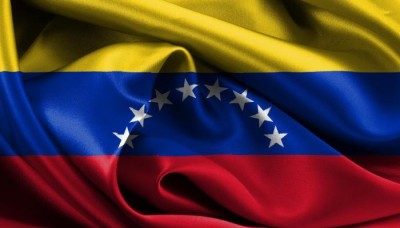Nicolas Maduro to Remain President. Venezuela Supreme Court Amendment Shortening Presidential Term Not Retroactive

Venezuela’s Supreme Court ruled Monday that an opposition-proposed constitutional amendment reducing the presidential term from six to four years will not apply to the current president, Nicolas Maduro.
Last week, the majority opposition bloc in the National Assembly approved in first discussion a constitutional amendment that would shorten mayoral, gubernatorial, and presidential terms from six to four years and prohibit more than one consecutive reelection.
However, the proposed amendment has stirred controversy with a special clause that would render the changes retroactive, cutting short President Maduro’s 2013-2019 term and triggering new elections this year.
In its latest decision released Monday, the Venezuelan Supreme Court ruled that the new shortened presidential term will not take effect in the case of the current head of state, citing Article 24 of the Bolivarian Constitution’s “absolute non-retroactivity” of all laws.
“To accept the assumption [of retroactivity] would constitute an unquestionable violation of the exercise of sovereignty outlined in Article 5 of the Magna Carta, since it would amount to a rejection of the will of the people,” the high court stated, referring to the fact that President Maduro was democratically elected to a six-year term in 2013.
In its historical review of past amendments shortening presidential terms, the tribunal pointed to the precedent of the 22nd Amendment to the US Constitution approved in 1951, which established a two-term limit for the highest office, but explicitly specified that the new restriction would not apply to the current office-holder.
According to the Supreme Court, the effort by the right-wing parliamentary majority to use a constitutional amendment to “immediately cut short the exercise of a popularly elected office such as the president” represents a “fraud to the constitution”.
The judicial body went on to note that the constitution contains “other mechanisms for expressing the popular will”, such as a recall referendum.
Nonetheless, the high court upheld the proposed modifications to the constitution as “perfectly viable” in the case of future presidential terms provided that the amendment is approved by national referendum.
The ruling comes as a blow to the right-wing opposition coalition, the MUD, which has spearheaded the constitutional amendment as part of its four-pronged strategy for ousting Maduro that additionally includes a recall referendum, a constituent assembly to rewrite the constitution, as well as street mobilizations.
National Assembly President Henry Ramos Allup blasted the ruling, calling the Supreme Court Justices “thugs” and accusing them of “constitutional fraud” for failing to wait for the final text of the amendment before issuing a verdict.
The opposition legislator did not respond to the content of the verdict.
Following its approval in first discussion last Wednesday, the amendment must now pass second and third discussion in parliament before being subject to referendum.

